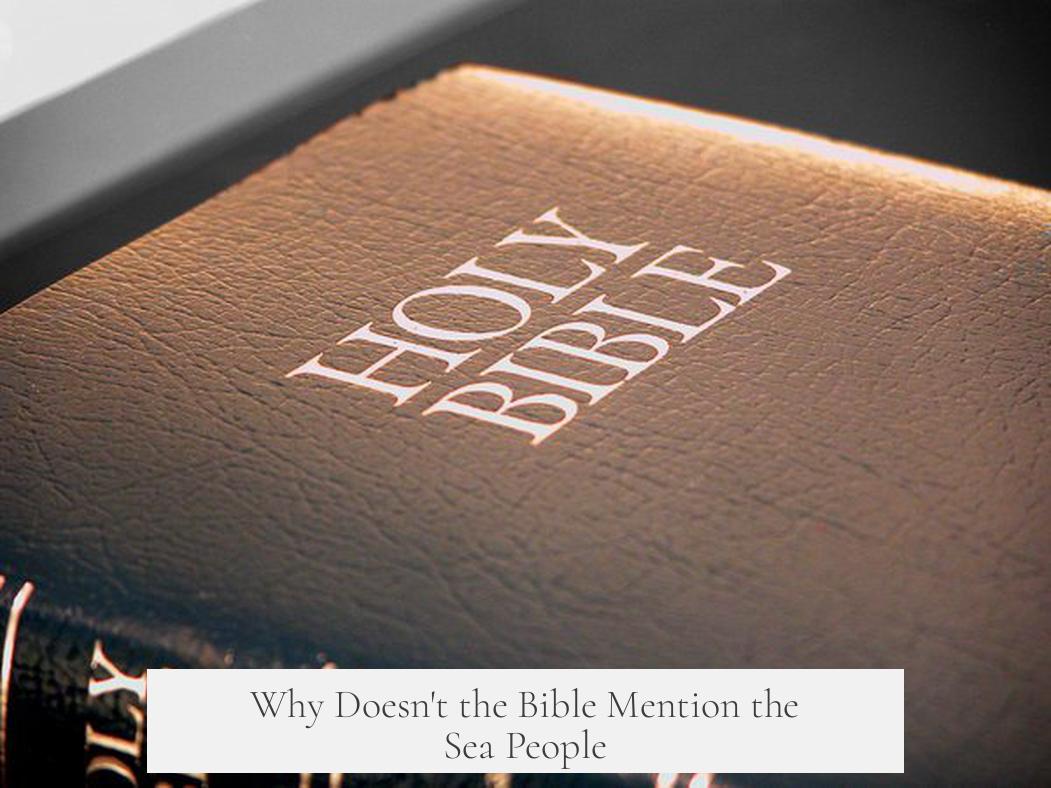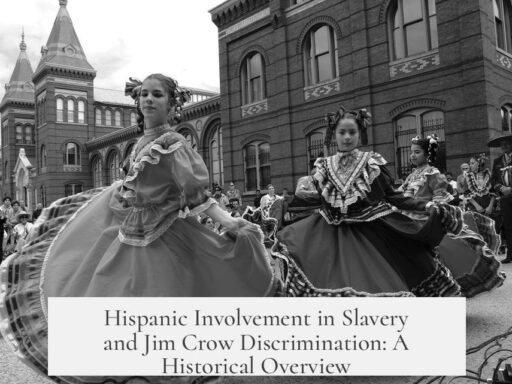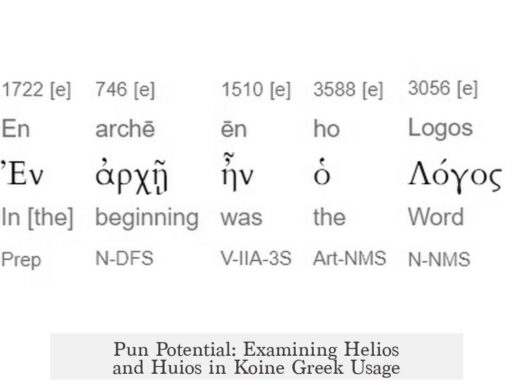The Bible does not explicitly mention the Sea People likely because these groups were not central to its core narrative, and the biblical texts were written long after the events attributed to the Sea People occurred. The Philistines, one group identified as part of the Sea People, appear in the Bible under their own name rather than as Sea People, reflecting the focus on Israelite history and religious identity rather than broader regional happenings.
The connection between the Philistines and the Sea People is widely accepted by scholars. Archaeological and textual evidence suggests the Philistines originated from the Sea People—a confederation of maritime raiders active during the Late Bronze Age collapse. However, the Bible refers to them by their established name, not as Sea People, which may explain the absence of that term in biblical texts. The biblical authors concentrated on groups directly interacting with the Israelites, giving particular attention to the Philistines.
There is much debate about who the Sea People were and their exact role in the collapse of eastern Mediterranean civilizations around 1200 BCE. This uncertainty complicates assertions about the Sea People. Ancient Egyptian records mention multiple Sea People groups but do not fully clarify their identity or origin. Since the Bible’s authors likely had limited knowledge of these groups or viewed them through a different lens, the Sea People’s absence as a distinct category in the biblical narrative is unsurprising.
Timing plays a crucial role. The activities of the Sea People overlap with the biblical period described as the Egyptian captivity or just before it. Some scholars propose a foreign Sea People dynasty may correspond to the “Pharaoh who knew Joseph not,” possibly linking Sea People invasions to Israelite enslavement. Another theory even suggests Israelites themselves could have been part of the Sea People, later enslaved during the reestablishment of native Egyptian dynasties. These ideas, however, lack firm historical corroboration and remain speculative.
More commonly, modern scholarship views the Israelite origin story differently. The Israelites likely emerged from Canaanite populations who gradually developed a separate identity over time. This theory challenges the historicity of the Exodus and Egyptian captivity narratives, suggesting these were part of later mythological constructions rather than literal history. Since the early biblical books like the Pentateuch and Judges are shaped by myth and ideology, their omissions and inclusions reflect theological priorities rather than comprehensive historical accounts.
The Pentateuch likely took its current form around the 6th or 5th century BCE, centuries after the Sea People’s activities. The biblical authors focused on crafting an origin story centered on Israel and their covenant with YHWH. They did not aim to produce a detailed, accurate history of all neighboring peoples or events. Consequently, groups like the Sea People appear irrelevant to the biblical story’s main concerns and are therefore absent.
The biblical narrative includes only those peoples and events that directly impact the story of Israel’s relationship with God. Sea People incursions, while impactful in a broader historical context, do not drive the theological or national story in the Bible. At the time of the Sea People’s activity, the biblical authors either depict Israelites as enslaved in Egypt unaware of YHWH or renewing their faith during the exodus. Sea People narratives do not fit well with these theological themes and so remain an unmentioned “side show.”
| Reason | Explanation |
|---|---|
| Philistines mentioned, Sea People not | Philistines were part of Sea People but are named specifically; focus on Israelite relations means broader groups go unnamed. |
| Historical uncertainty | Ambiguity about who the Sea People were complicates their mention in texts focused on clear identities. |
| Timing of biblical authorship | Texts compiled centuries after events, focusing on origin myths, not detailed history. |
| Theological focus | Sea People’s story lacks relevance to Israel’s covenant relationship with YHWH. |
- The Bible refers to the Philistines but not the Sea People explicitly.
- Philistines likely descended from Sea People groups active around 1200 BCE.
- Debate persists about Sea People’s identity and actions during the Late Bronze Age collapse.
- Biblical texts prioritize Israel’s national and religious history over broader regional events.
- The Pentateuch emerged centuries later, emphasizing mythological origins, not detailed history.
- Sea People narratives do not align well with Israel’s story or theological aims of biblical authors.
Why Doesn’t the Bible Mention the Sea People?

Curious why the mysterious Sea People—those enigmatic marauders of the Late Bronze Age—don’t get a single shout-out in the Bible? The answer isn’t a simple one. It’s a stew of timing, narrative focus, and historical ambiguity. Ready to dive in? Let’s unpack this.
At the heart of it: the Bible doesn’t mention the Sea People directly because their story doesn’t fit the biblical plot.
Here’s the scoop. The Sea People were a confederation of naval raiders who appeared around 1200 BCE, wreaking havoc across the Eastern Mediterranean and contributing to the Late Bronze Age collapse. Yet, within the biblical texts, their name is absent. Instead, we find references to the Philistines—who some scholars believe were descendants or part of these Sea Peoples. So, are the Philistines the Bible’s version of the Sea People? Quite possibly.
Philistines: The Bible’s Sea People in Disguise?
The Philistines pop up regularly in the Bible as the persistent foes of the Israelites. They settled along the coast of Canaan and brought advanced weaponry and culture. This aligns well with what we know about the Sea People coming from the sea and settling in coastal regions. That overlap makes the Philistines a prime candidate for being part of the Sea People or at least their legacy.
Why no direct mention of the “Sea People” then? Well, the Bible is a collection of texts written by and for a people focused on their relationship with YHWH and their identity as Israel. The term “Sea People” is an archaeological and Egyptian historical label, not a biblical one. The Bible’s authors wouldn’t have used that label as it didn’t fit their narrative lens or purpose.
Timing and Literary Focus: The Sea People and Biblical History

The activity of the Sea People coincides roughly with the traditional period of Israelite captivity in Egypt or slightly before—around 1200 BCE. Some scholars even speculate that a foreign dynasty from the Sea People’s ranks could have been the Pharaoh “who knew Joseph not,” hinting that the Sea People might have enslaved the Israelites. Another intriguing theory suggests Israelites themselves might have been part of the Sea People, caught in the great reshuffling of peoples during this volatile era.
Here’s the catch: the biblical texts that describe these events—the Pentateuch and Judges—likely didn’t take their current shape until much later, around the 6th or 5th century BCE. By then, memories had faded. Writers focused on providing an origin story steeped in divine interaction, not detailed contemporary history. Their goal wasn’t to chronicle every belligerent sea raider or ethnic group but to build a cohesive, meaningful narrative for their audience. So, the literary choice naturally excludes extraneous groups like the Sea People unless they serve the story’s central theme.
Alternative Theories: What if the Israelites Were Canaanites?
One of the hottest debates today is the idea that the Israelites never experienced an Egyptian captivity or Exodus. Instead, they could have been Canaanites who gradually developed a separate identity over time. This theory impacts how we view the absence of Sea People references. If the biblical story is more mythological foundation than strict history, the Sea People might simply lie outside the narrative the authors wanted to tell.
Think about it: much of the Pentateuch and Judges reads like mythic storytelling. Stories about Esau selling his birthright or Judah’s control over Edom fit symbolic themes and cultural memories more than strict historical accounts. The Sea People, with their complex and uncertain history, don’t fit neatly into that kind of mythological framework.
Debate and Uncertainty: The Sea People Remain a Puzzle

Scholars still can’t agree on who exactly the Sea People were or what the Late Bronze Age collapse really entails. Some see them as marauding invaders, others as refugees or displaced peoples. This uncertainty spills into our understanding of biblical silence about them. When even modern experts struggle to pin down facts, it’s no surprise the ancient writers focused on things they understood and that mattered to them.
The Bible’s Central Focus: Israel’s Relationship with YHWH
At the end of the day, the Bible’s authors shaped their text around the story of Israel and their god, YHWH. Only people and events relevant to that narrative were given space. The Sea People’s raids and migrations might have been nothing more than a distant backdrop, an uninteresting side show to a story about captivity, liberation, and covenant.
Consider this: If the Israelites were enslaved—and perhaps even influenced—by the Sea People, it would be hidden under layers of theological interpretation. The focus stays tightly on divine providence, nation-formation, and moral lessons, not on external updates about sea-borne raiders.
So, What Can We Take Away?
- The Philistines probably represent the Sea People’s presence in the Bible, just under a different name.
- The biblical timeline and narrative focus mean direct references to the Sea People aren’t a priority or even relevant.
- The Pentateuch and Judges were written centuries later and are more mythological than historical records.
- The debate around the Sea People’s identity and role remains unresolved, complicating their biblical visibility.
- The Bible’s core story is about Israel’s covenant with YHWH, sidelining events and peoples that don’t fit that purpose.
Next time you wonder about the missing Sea People in the Bible, remember: it’s not just about omission, but about storytelling choices shaped by faith, identity, and history’s fog. Maybe the secret is that they’re there in disguise… as the enigmatic Philistines, always lurking just off the page.




